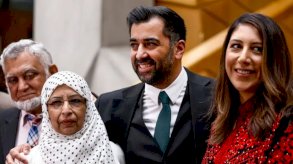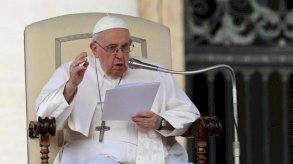&
 | [home] [databases] [world law] [multidatabase search] [help] [feedback] | |
england and wales high court (queen's bench division) decisions | ||
you are here: bailii >> databases >> england and wales high court (queen's bench division) decisions >> his highness prince moulay hicham ben abdullah al alaoui of morocco v elaph publishing ltd [2015] ewhc 1084 (qb) (24 april 2015) url: http://www.bailii.org/ew/cases/ewhc/qb/2015/1084.html cite as: [2015] ewhc 1084 (qb) | ||
[new search] [printable rtf version] [help]
&
&
&
&
&
| & | & | |
| & | & |
queen's bench division
&
| & | & | strand, london, wc2a 2ll |
| & | & |
b e f o r e :
____________________
| & | his highness prince moulay hicham ben abdullah al alaoui of morocco | claimant |
| & | - and - | & |
| & | elaph publishing limited | defendant |
____________________
david glen (instructed by payne hicks beach) for the defendant
hearing dates: 30 march 2015
____________________
____________________
crown copyright ©
mr justice dingemans:
&
- this is a libel claim brought by the claimant his highness prince moulay hicham ben abdallah al alaoui of morocco ("moulay hicham") against the defendant elaph publishing limited ("elaph") in respect of an article published in arabic on its news website on 8th and 9th october 2014. elaph is a company incorporated in england and wales. the article was removed following a complaint by moulay hicham's solicitors on 9th october 2014.
&
- proceedings were issued on 10th october 2014 and particulars of claim were served on 8th december 2014. a certified translation of the article was annexed to the particulars of claim, and the application is made on the basis of that translation.
&
- elaph brings an application seeking a determination that the words pleaded in paragraph 3 of the particulars of claim are not capable of bearing: (a) the defamatory meanings pleaded in paragraphs 6.1 to 6.3 of the particulars of claim; (b) any other meaning defamatory of moulay hicham; and (c) that the claim be struck out and reverse summary judgment be entered for elaph.
&
- there was, in the alternative, an application for a preliminary issue about the actual meaning of the words. however this was not pursued at the hearing before me. this was because a preliminary issue to determine the actual meaning and whether that meaning was defamatory (as opposed to whether the words were capable of bearing any defamatory meaning) will raise issues about whether the statement "has caused or is likely to cause serious harm" to the reputation of the claimant within the meaning of section 1 of the defamation act 2013. the publication was on the internet and it was common ground that there was relevant evidence about the extent of the internet publication which might be adduced.
&
- i should note therefore that this is an application about whether the words are capable of bearing a defamatory meaning. my task is therefore to "pre-empt perversity", see rufus v elliot [2015] ewca civ 121 at paragraph 8.
&
- after argument and before delivery of the judgment i was notified that the parties might be able to resolve matters and i was asked to delay delivery of my judgment. i was then informed that the parties had not been able to settle matters and i therefore hand down judgment.
&
the article
- the relevant part of the article, together with paragraph numbers to assist in the reference, is set out below:
&
"using former boxer zakaria moumni in a premeditated plot:
moulay hicham schemes to entrap mounir al-majidi
[1] moulay hicham does not pass up any chance to sabotage the image of moroccan king mohammed vi, and the latest ploy utilised former boxer zakaria momeni to bring down mounir majidi, assistant and adviser to the king.
[2] beirut: everything that harms morocco always involves moulay hicham. this argument has become increasingly prevalent in the corridors of the royal family palace in light of the machinations that the cousin of king mohammed vi never ceases to weave, the most recent of which, recently involved a take-down of mounir majidi, an aid very close to the moroccan monarch's heart.
premeditated plots
[3] reports emerged stating that moulay hicham met with former moroccan boxer zakaria moumni on 26th june this year in the fouquet hotel in paris in order to urge him to raise a case against majidi in french courts on charges of making death threats. hicham requested that moumni keep the case a secret, so that majidi could be forcibly held when he came to france.
[4] hicham launched a similar strike last february on abdellatif hamouchi, head of morocco's anti-espionage agency, who was called by the french judiciary for investigation while staying at the home of the moroccan ambassador in paris. this issue had a negative impact on french-moroccan relations.
[5] moumni insists that the alleged meeting happened only by coincidence—but this was the response that hicham whispered into his ears. the latter is working very hard not to answer the fundamental question: what is the difference between a chance meeting that he claims took place and the meeting that lasted half an hour? moumni admits, however, and without equivocation, that he met moulay hicham and his wife in the fouquet hotel because he, himself, frequents the hotel and happened to see the alaouite prince, himself, visit that day.
coincidence or conspiracy!
[6] few believe the story of the accidental meeting, especially since hicham visited the george v four seasons hotel, owned by a relative of saudi prince alwaleed bin talal, when he was in paris. the fouquet hotel, where the meeting took place, is situated on the same street.
[7] news reports list some of the finer details of this meeting, claiming that the moroccan prince spoke frequently while moumni spent half an hour listening attentively. hicham incited the former boxer to say, at every occasion and wherever he went, that mounir majidi, secretary to the moroccan king, threatened to kill him in france. he also urged him to submit a judicial complaint against majidi, informing him of people that would help him do so and asking him to contact them.
[8] moumni himself is the world champion of a type of thai boxing called "light contact." he currently benefits from a decree issued by late moroccan king hassan ii which appointed him sports advisor of morocco, despite the fact that the sport that he practices is not included on the list of sports recognised by the olympics. in 2006 moumni received authorisation to operate two large fare-operated vehicles and take all the revenues. one would be placed under his name and the other under his father's name. thus, the man set fire to the kingdom's highest-ranking centres whose revenues he benefits from, just like a man who drinks from a well and then throws a stone inside it…"
pleaded meanings and relevant contentions
- it was pleaded on behalf of moulay hicham that the natural and ordinary meaning of the words was:
&
"(1) that the claimant had orchestrated a plot to sabotage the image of king mohammed vi of morocco whereby, in the course of a pre-arranged meeting at the fouquet hotel in paris on 26 june 2014, he had induced zakaria moumni: (a) to make false allegations against the king's close aide mounir majidi that he, majidi, had threatened to kill moumni, and (b) to bring a criminal complaint against majidi on the basis of such false allegations so that majidi would be arrested in france;
(2) that the claimant had instructed moumni to lie to cover up the plot by claiming, falsely, that his meeting with the claimant at the fouquet hotel had been coincidental;
(3) that the claimant had orchestrated a similar plot against abdellatif hamouchi, the head of morocco's anti-espionage agency, in the february before this, which had resulted in hamouchi's being called in for questioning by the french judicial authorities, and the claimant was therefore responsible for the resultant negative impact on french-moroccan relations."
- mr rushbrooke qc on behalf of moulay hicham placed particular emphasis on the words in the article which it was said would affect the whole approach of the reader including: "using"; "premeditated"; "plot"; "schemes"; "entrap"; "sabotage"; "ploy"; "take-down"; and "conspiracy". it was submitted that the implication for any reasonable reader was that moulay hicham was getting moumni to give false evidence against aides to the king, or had encouraged moumni to give evidence where moulay hicham had shown no interest in whether it was true. it was said that the article suggested that moulay hicham, as a prince, was working against the interests of the king by encouraging persons to report matters against the aides and that was defamatory.
&
- mr glen on behalf of elaph contended that the article is incapable of bearing the meaning that moulay hicham encouraged mr moumni to make "false" allegations, and that the allegation of falsity was fundamental to all of the meanings complained of on behalf of moulay hicham. it was said that it may have been that moulay hicham did not in fact encourage mr moumni to make the allegations and was not working against the king but that would simply show that the article was wrong, but it cannot be defamatory to say that a person opposes the ruling monarch, because that depends on what view is taken of the monarch and monarchy.
&
- mr rushbrooke submitted that the meanings were defamatory even if the allegations were not known by moulay hicham to be false, because it would be defamatory to say that he encouraged the making of allegations not caring whether they were false. reference was made to the pre-action correspondence and the suggestion that the sting of the article was that moulay hicham was working against the interests of the king of morocco. there was a discussion in submissions about whether it would be defamatory to say that a prince was working against the interests of the monarch.
&
applicable legal principles
- the principles to be applied on applications of this nature are well-established. they were summarised by sir anthony clarke mr in jeynes v news magazines limited at [14]:
"the legal principles relevant to meaning … may be summarised in this way: (1) the governing principle is reasonableness. (2) the hypothetical reasonable reader is not naïve but he is not unduly suspicious. he can read between the lines. he can read in an implication more readily than a lawyer and may indulge in a certain amount of loose thinking but he must be treated as being a man who is not avid for scandal and someone who does not, and should not, select one bad meaning where other non-defamatory meanings are available. (3) over-elaborate analysis is best avoided. (4) the intention of the publisher is irrelevant. (5) the article must be read as a whole, and any 'bane and antidote' taken together. (6) the hypothetical reader is taken to be representative of those who would read the publication in question. (7) in delimiting the range of permissible defamatory meanings, the court should rule out any meaning which, 'can only emerge as the produce of some strained, or forced, or utterly unreasonable interpretation …' …. (8) it follows that 'it is not enough to say that by some person or another the words might be understood in a defamatory sense.'"
[2008] ewca civ 130 - there are a number of well-known definitions of the legal meaning of the word "defamatory". sir thomas bingham mr in skuse v granada television limited at 286 said:
"a statement should be taken to be defamatory if it would tend to lower the plaintiff in the estimation of right-thinking members of society generally or would be likely to affect a person adversely in the estimation of reasonable people generally."
[1996] emlr 278 - it follows that it is not enough that the words should damage the claimant in the eyes of a section of the public only, see modi v clarke [2011] ewca civ 937. it does not defame someone to say that he wishes to destroy the structure of world cricket, because that depends on the views of that section of the public interested in the sport on the current structure, see paragraph 30. this mirrors strasbourg jurisprudence which emphasises the latitude given to statements about public figures and political matters where reasonable persons may have very different views about actions and systems of government, see lingens v austria (1986) 8 ehrr 407 at paragraph 41 and the analysis in curran v scottish daily record and sunday mail ltd [2011] csih 86 at paragraphs 51 and 53.
&
- it is also relevant to note that the claim was brought in relation to the "natural and ordinary meaning" of the words, and not an innuendo meaning. a natural and ordinary meaning does not require the support of extrinsic facts passing beyond "general knowledge", or "matters of universal notoriety" or "matters which any intelligent viewer or reader may know".
&
evidence
- there were a number of witness statements in the bundle before me. these included witness statements on behalf of the defendant from dominic crossley and andrew willan, and witness statements on behalf of the claimant from moulay hicham and nicole doucette.
&
- some of this evidence related to matters which were not before me, such as serious harm, and some related to matters which it was alleged any "intelligent reader" of elaph's website would know. mr glen submitted that such a reader would know that there was political opposition to the moroccan regime related to the arab spring, and that questions had been raised about morocco's human rights record. mr rushbrooke submitted that the article itself gave the relevant context and that nothing more was required.
&
- in my judgment the materials set out in the witness statements of mr crossley and mr willan go far beyond what would be known to the ordinary reader of the elaph website, including extracts of books and previous articles. those materials are not relevant for the purposes of determining the issue which is before me. the same is true of the materials set out in the witness statement from moulay hicham, which also set out particulars of why moulay hicham said that the article was wrong and inaccurate. in my judgment any hypothetical intelligent reader of elaph would know, as a matter of general knowledge, that there is a monarchical regime in morocco and that the king is the ruler of morocco. it might be noted that this part appears from the article in any event.
&
- nicole doucette had carried out the original translation of the article. she gave evidence giving alternative words for the translated words, and gave her interpretation of the meaning. however her evidence was also not relevant to the issue before me. this is because there was a translation with the particulars of claim and the claim is made on the basis of that translation which has been accepted, and because ms doucette's opinion of what the article means is not admissible evidence.
&
- in the end i have determined this application on the basis of the article and its original translation. the other materials in the witness statements might be relevant to other applications, but they have not assisted me in determining this "capability" application.
&
my determination
- all of the words highlighted by mr rushbrooke and set out in paragraph 8 above are relevant to the meaning that the hypothetical reasonable reader will give to the article. however in my judgment a reasonable reader would not read the article as saying that moulay hicham had induced zakaria moumni or any other person to make "false" allegations against majidi so that he might be arrested. this is because the article does not deal with whether the allegations were "false" or whether moulay hicham had not cared whether the allegations were true, and the article deals with moulay hicham's role in encouraging the making of the complaints. indeed to the extent that the matter is dealt with the article states that moulay hicham "does not pass off any chance" to sabotage the image of the king, which suggests that moulay hicham had taken advantage of facts which had become known to him. the use of the words "premeditated plot" or "ploy" shows only that it was planned and not that it was fabricated. the fact that matters are kept secret does not suggest that they are false.
&
- the article does say that moulay hicham urged zakaria moumni to raise a case against an aide close to the moroccan king on charges of making a death threat, and had launched a similar strike against addellatif hamouchi, head of the anti-espionage agency. the article does suggest that this was part of a campaign to harm the image of the king, and the article appears to take the line that any such approach is wrong. however that depends on the views of that section of the public interested in the politics of morocco. it is not, in my judgment, capable of being defamatory of someone to say that they are working against the interests of a ruler for the reasons given in modi v clarke. i should record that i understand the concerns of moulay hicham about the article, who denies that the article was accurate or that he was working against the interests of the king, however an inaccurate article is not necessarily defamatory. for all these reasons in my judgment the words are not capable of bearing the defamatory meanings pleaded in paragraphs 6.1 and 6.3 of the particulars of claim (and set out in paragraph 8 above).
&
- in my judgment the position is different in relation to paragraph 6.2 of the particulars of claim. a reasonable reader might conclude that the article said that moulay hicham had instructed mr moumni to lie about the meeting happening by coincidence. this is because of the words "but this was the response that hicham whispered into his ears", the heading "coincidence or conspiracy?" and the phrase "few believe the story of the accidental meeting, especially since …". this meaning is capable of being defamatory of moulay hicham because it suggested he had lied. in my judgment this meaning is not dependent on the allegation of falsity in relation to meanings in paragraph 6.1 and 6.3 because it relates to the report of the meeting about making the allegations, and does not deal with whether the allegations were false. it is capable of crossing the threshold of seriousness, but whether it has done in the circumstances of this case can be addressed at the determination of the other applications.
&
- there was some argument about whether the article would be capable of bearing other meanings defamatory of moulay hicham, but in the event no other meanings were proposed. it was common ground that the parties should be given time to consider this judgment and any possible amendments to the particulars of claim before the outstanding applications were determined.
&
- in these circumstances the issue of reverse summary judgment does not arise, and it is right to record, as mr rushbrooke noted, that there had been no compliance with the formalities of such an application.
&
conclusion
- for the detailed reasons given above in my judgment the article was not capable of bearing the defamatory meanings pleaded in paragraphs 6.1 and 6.3 of the particulars of claim. the articles were capable of bearing defamatory meanings set out in paragraph 6.2 of the particulars of claim.
&
- the parties are to have time to consider this judgment and any possible amendments to the particulars of claim.
&
&
&
&
bailii: copyright policy | disclaimers | privacy policy | feedback | donate to bailii
url: http://www.bailii.org/ew/cases/ewhc/qb/2015/1084.html
&















التعليقات